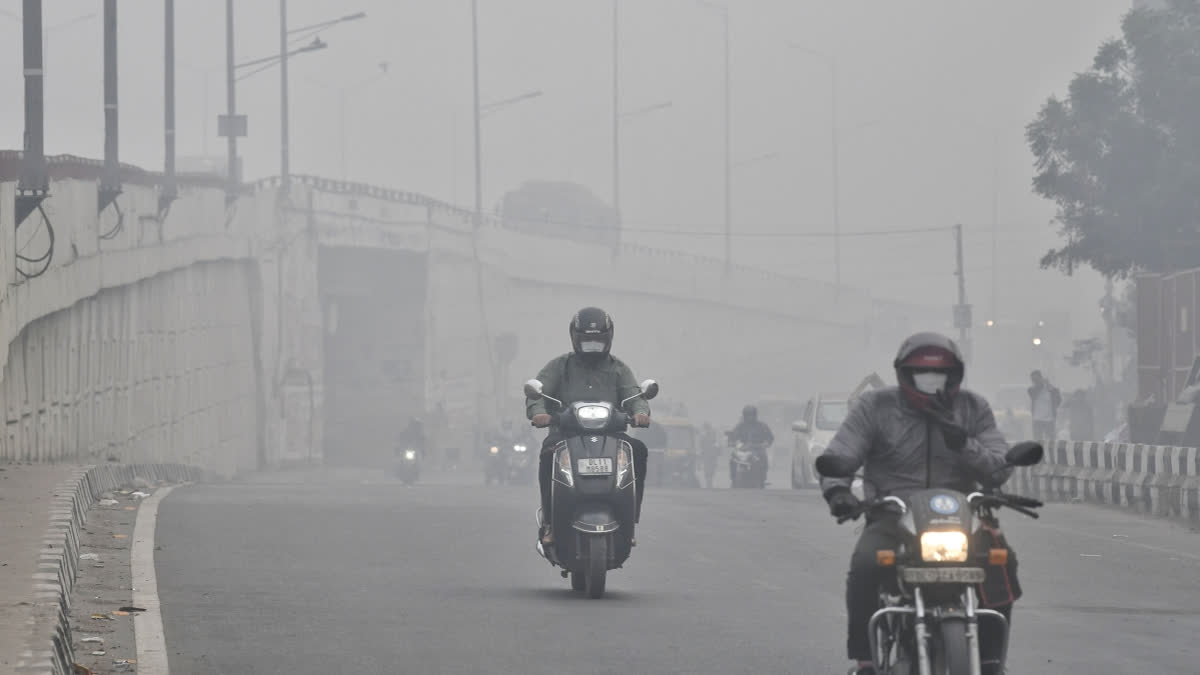New Delhi:As the air quality in Delhi-NCR has reached 'alarmingly high' levels, with most Air Quality Index (AQI) stations touching 500-mark even on Tuesday, doctors in the national capital are concerned about the rise in harmful atmospheric elements adversely impacting public health.
ETV Bharat spoke to Dr Sandeep Nair, HOD of Chest and Respiratory Diseases, BLK Hospital and Dr Bharat Gopal, Senior Pulmonologist about the risks that the citizens here are prone to amid worsening air quality levels.
Addressing the pressing environmental issues at hand, Dr Gopal said that gases such as Ammonia and Nitrogen Dioxide are within the standard, but the amount of benzene in the air is much higher than the prescribed standard, thus causing serious health risks.
"Benzene can cause serious harm to eyes as it prevents the flow of oxygen in the cells. It is also responsible for causing severe allergies. The increase in benzene in NCR atmosphere hints towards a leakage in a big plant somewhere," Dr Gopal said.
He warned residents of the tense situation here, asking people to be extremely cautious. "Go out of the house only when it is extremely necessary so that you can avoid the dangerous gases present in the atmosphere," Dr Gopal advised.
People With No History Of Respiratory Diseases Getting Hospitalised
Speaking to ETV Bharat, Dr Sandeep Nair said residents in the national capital are unable to breathe properly, making them weak and frail.
He said that the presence of deadly oxides in the air, such as Carbon Monoxide, Sulphur Oxide and Nitrogen Oxides causes heightened levels of pollution, damaging the lungs and causing breathlessness.
"These harmful gases are released when petrol and diesel are burned, causing breathing trouble, burning sensation in the eyes and headache. The presence of lead in the air is dangerous, as it can aid in the development of cancer cells in the body when inhaled," Dr Nair added.
These harmful components present in the air weaken human bones, the doctor said, adding, "This is why the number of patients suffering from pollution has increased in the last two weeks. Asthma attacks among patients are on a steady rise, overcrowding the emergency wards in hospitals."
The doctor said they are seeing cases where people with no history of respiratory diseases are getting hospitalised. "Several patients with issues of vomiting, headache and burning sensation in the eyes are also approaching medical help," Dr Nair said, adding that this trend is a direct result of the presence of harmful gases in the atmosphere here.
Speaking of precautionary measures, the senior doctor said that the use of incense sticks at home has to be banned immediately.
"Cleanliness is godliness. One must keep their houses absolutely clean and tidy. Use public transport instead of private transport to save the environment from the poisonous gases emitted by using petrol and diesel. Also, go out of the house as little as possible. Take special care of the children and the elderly in your family. If you at all need to go out in cases of emergencies, do not forget to wear a mask," Dr Nair added.
